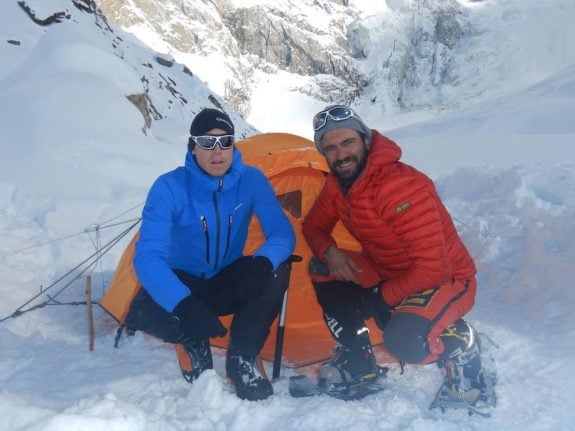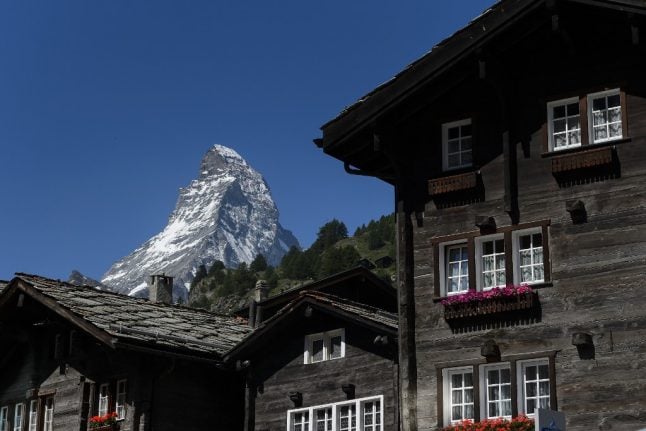Climbers Daniele Nardi and Tom Ballard were last heard from on Sunday as they climbed the Nanga Parbat, which at 8,125 metres is the world's ninth-highest peak.
They were attempting a route that has never before been successfully completed.
Heavy snowfall on Friday kept a helicopter from taking off and a ground team confined to base camp in the western Himalayas.
“Snowfall has reduced the visibility and we expect snowfall for the coming three to four days, which makes it difficult for us to climb up and do a ground search,” Pakistani mountaineer Muhammad Ali Sadpara told AFP by telephone from Nanga Parbat base camp.
He said the the mountaineers had taken the notorious Mummery route, named after a mountaineer who died while attempting it in 1895. The route has never been attempted since then, he said.
“The risk of avalanche makes it [rescue] almost impossible in this weather,” he added.
“The weather prediction for the coming few days is not good, and unfortunately it will make it very difficult for us to fly,” he told AFP.
Four Russian mountaineers currently at the base camp for K2, the world's second highest mountain and also in northern Pakistan, had volunteered to join the search. But a spokesperson for the Russians said the Nanga Parbat climbers' support team had opted instead to carry out the search using drones.
READ ALSO:
- 'Please stop climbing mountains in jeans and trainers,' Italy's alpine rescue team pleads
- Moving mountains: Italian regions squabble over who can claim 'Queen of the Dolomites'
- Italian couple become first to conquer world's 14 highest mountains
Nardi's team said on Facebook that the climbers' tent had been “spotted from a helicopter, buried under snow. Traces of avalanches can be seen”. But Karim Shah, a Pakistani mountaineer and friend of Nardi who is in contact with the team at the base camp and the search team, said that tent was spotted on a different route than the one taken by the missing climbers.
Ballard is the son of British mountaineer Alison Hargreaves, the first woman to conquer Mount Everest solo and without bottled oxygen. She died descending K2 in 1995.
The search was delayed because rescue teams were forced to wait for permission to send up a helicopter after Pakistan closed its airspace on Wednesday in response to escalating tensions with India.



 Please whitelist us to continue reading.
Please whitelist us to continue reading.
Member comments